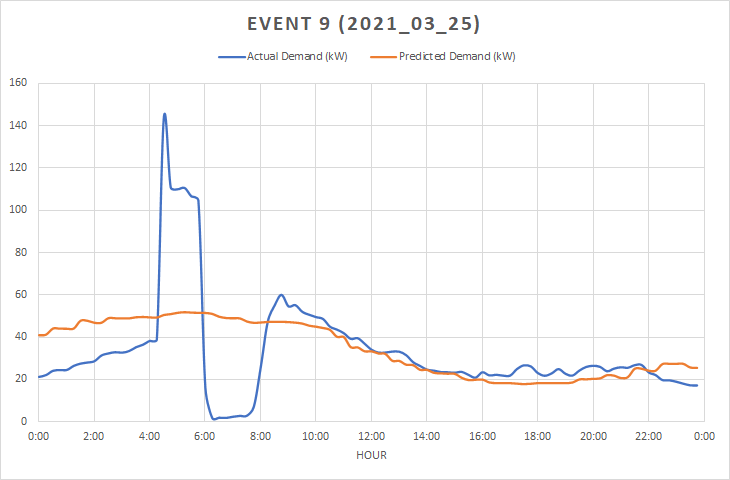Results from the 2021 Pilot
In the winter of 2021, we ran 12 test events with over 400 programmable electric baseboard thermostats installed in homes with electric heat. From these test events, we found out that we were able to lower peak demands for power during the winter by as much as 44.5 kilowatts. This is great news for all Yukoners as every little reduction in peak demand means less diesel is used to generate electricity during that time.
We also learned that the Peak Smart devices had the biggest impact on lowering peak demand for power when we preheated the electric baseboard thermostats by 2°C a couple of hours before the anticipated peak, and then turned down the thermostats by 3°C during peak hours.
During these times, we saw an average reduction of 0.26kW/device (0.65kW/home) for a -3°C setback and 0.14kW/device (0.22kW/home) for a -1°C setback during the hours of the demand response event.
Allowing the baseboard heaters to pre-heat the houses before the peak also resulted in most participants not even noticing a temperature change while the thermostats were turned down.
These learnings are key as they help us plan how we can leverage this type of technology in the future.
Here is an example of what a demand response event looked like with a -3°C setback on a WiFi thermostat.

Peak Smart Support - Need Help?
-
Program questions
Phone: 867-457-0071 or 1-833-257-7184
-
Technical questions
Phone: 1-855-741-7701
-
Help after hours
Phone: 867-668-3053